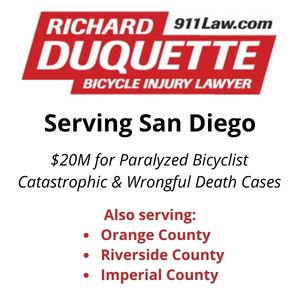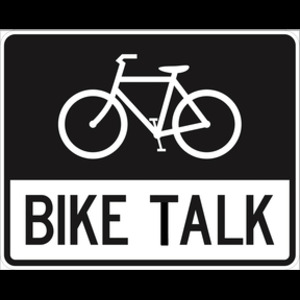
I take it back.
Even though the door officially closed on the 5th Annual BikinginLA Holiday Fund Drive before Christmas Eve, some very kindhearted people pried it back open anyway.
So thanks to Plurabelle Books, Phillip Y and Michael D for their generous contributions to help keep SoCal’s best bike news and advocacy coming your way every day.
Thanks to their last-minute gifts, we hit record 61 donations totaling $2,567, topping last year’s total of nearly $2,500.
To put that in perspective, that represents nearly 25% of my total income for all of last year.
So thank you all, from the bottom of my heart.
Photo by Juan Pablo Serrano Arenas from Pexels.
………
NTT pro cyclist Nic Dlamini, one of the few black cyclists on the WorldTour, had his arm broken by South African national park workers — apparently for failing to pay a $6.40 entry fee.
Reports from the scene indicate that the workers lay in wait for him and grabbed his handlebars without warning, knocking Dlamini off his bike.
Thinking he was being robbed — not an unusual occurrence for South African cyclists — he tried to grab his damaged bike back, leading his attackers to conclude he was resisting arrest.
With predictable results.
Note: You can literally hear the bone in Dlamini’s arm snap in the flowing video, so you may not want to view this if you’re squeamish. Or at least turn the sound down.
Wtf @TableMountainNP @SANParks @VanHaywood. Someone just broke Nic Dlamini’s arm pic.twitter.com/oYQGiTNUPM
— Lawrence (@larrymontana) December 27, 2019
Meanwhile, a witness says he was disgusted by the way Dlamini was manhandled; his injury could affect his racing schedule for the coming year, as well as preparations for the 2020 Olympics.
Thanks to Megan Lynch for the heads-up.
………
Proving he has no idea what he’s doing — or maybe trying to outdo the windshield bias of former CA Governor Jerry Brown — NY Governor Andrew Cuomo vetoed a bill that would have belatedly legalized ebikes in the Empire State.
Mostly because it didn’t include a provision requiring helmets for ebike users, even though they aren’t required for any other adult bicyclists in the state, no matter how fast they ride.
And even though many, if not most, other states have managed to legalize ebikes without undue restrictions on bikes that travel below 28 mph.
And even though the current ban hurts lower income, mostly immigrant food delivery workers the most.
While the bill passed by overwhelming, veto-proof margins, it’s unlikely to be overridden because the legislature would have to be called back in to special session.
Meanwhile, a new study shows ebike riders are more likely to suffer internal injuries.
Which helmets ain’t gonna help.
………
Proof that something can be too cute and too sad at the same time.
A koala in fire-scarred Australia flags down a bicyclist, and climbs her bike to share a little water on a 104° day.
But at least the little guy knew who to turn to for help.
………
It may not be about bicycling.
But take a few minutes to read this hard-hitting, painful piece from Tamika Butler about how to survive in the planning community when you’re young, black and queer.
………
Proof that Vision Zero can work.
But only if elected leaders have the courage to stand up to drivers to make real changes.
Hint: Ours apparently don’t.
This makes me happy:
Road deaths in Oslo (pop. 673.000) in 2019:
Pedestrians: 0
Cyclists: 0
Children: 0The graph shows the reduction of road deaths since 1975.
Article in Norwegian: https://t.co/9Dv2bLZlFT
#VisionZero pic.twitter.com/MCRFK1wPJ3
— Anine Hartmann (@aninehartmann) January 1, 2020
………
The war on cars may be a myth, but the war bikes goes on.
A British woman was lucky to escape without serious injuries when she crashed into barbwire someone had strung across a bike path.
No bias here. A clickbait website lists 20 things that “guys riding bicycles” do that drivers can’t stand, including just about everything this side of merely existing.
………
‘Tis the Season.
Apparently, the giving isn’t over yet.
Closing out the year giving thanks to giantbicyclesusa for helping the @bahatifdn deliver 70 bikes to local students in South LA.
This day made everyone within our organization so happy and we look to make it even… https://t.co/AyERSNImeo
— Rahsaan Bahati (@bahatiracing) January 1, 2020
The Pasadena Police Department teamed with the Salvation Army and Pasadena Rotary Club to give 250 new bikes to local kids this year.
Kindhearted officers with the Seal Beach police union bought a new bike and helmet for a man after a thief pushed him off his bike and into traffic, before making off with his bicycle; police arrested the suspect a short distance away.
And ex-pro Phil Gaimon kicks off a great thread of kids enjoying their new bikes this year; just click on the tweet and scroll down.
If your kids got a bike today, please respond to this with a picture or video of them enjoying it.
— Phil Gaimon (@philgaimon) December 25, 2019
………
We’ve still got a lot of ground to cover. So maybe we should just take a brief corgi break before moving on, courtesy of Mike Cane.
There. Doesn’t that feel better?
………
Local
The LAPD says they’re focusing on six Westside intersections that have seen an uptick in car crashes, including three each on Santa Monica and Sepulveda Blvds. Which would suggest that those corridors aren’t exactly safe for people on bicycles, either.
Apparently trying out for a job at the Onion, a Venice columnist insists that people who are able to bike or walk to work thanks to increased density will be more likely to die of strokes because of a lack of green space.
A writer for Bike Radar rides a $30 refurbished Univega from LA’s Bicycle Kitchen 130 miles to Tijuana to attend a worldwide gathering of DIY bicycle workshops, calling it the wrong bike for the right job. Let’s just say she’s not a fan of friction shifting.
CiclaValley celebrates one million vertical feet of climbing this year.
State
As of yesterday, you no longer have to merge to the left at an intersection when a bike lane becomes a right turn lane, or vice versa. But don’t try eating roadkill just yet.
California somehow continues to believe a slap on the wrist will change driver behavior, as drivers will now be charged a single point against their license for using a handheld cellphone — but only after the second offense in 36 months.
A San Diego bike rider suffered “significant” injuries when he was struck by a vehicle, which apparently didn’t have a driver. At least according to the news report.
It looks like justice denied in Bonsall, where the CHP apparently concluded that an experienced bike rider would somehow swerve into traffic without looking while surrounded by drivers traveling at highway speeds.
A Cambria writer takes up riding an ebike as an alternative to driving, and discovers he “had no idea how dangerous it is for people riding a bike” until he was one of them.
Note to self: Don’t ride around Bakersfield with a shotgun in your pants.
National
In a case of life imitating art — or advertising, anyway — the actor who played the husband in the infamous Peloton holiday ad gave one to his own girlfriend for Christmas. No word on whether she left him because of it, like one version of her fictional counterpart.
Streetsblog USA announces the winners of their simultaneously serious and tongue-in-cheek national Streetsie Awards, including a gridlock tweet from LA Times transportation beat reporter Laura Nelson.
Senate Minority Leader Chuck Schumer is one of us. Although he might want to save that helmet for the upcoming impeachment trial, when things are likely to get rough.
A writer for Outside says she loved bike touring — until she decided to do it for a living.
How to carry your full-sized golden retriever with you on your bike.
Harvard Business Review examines why it’s so hard to change people’s commuting behavior; Treehugger laments how will we ever get people out of their cars?
He gets it. A police sergeant and CyclingSavvy instructor says no law requires you to endanger yourself, so stay out of the door zone. Just try explaining that to some of his less-enlightened compatriots, though.
Your next wall rack could look like you just bagged and mounted a bike seat. Although I’m not sure just what message that sends.
A self-professed Portland driver, off-roader, motorcyclist, bicyclist, runner and pedestrian says the city should end its war on cars, somehow mistaking carving out a little room for his other means of transportation as an attack on the first one.
Oregon became the latest state to adopt a modified version of the Idaho Stop Law, allowing bike riders to treat stop signs as yields; a Portland TV station compares it to drivers rolling stop signs, except it’s for bikesl.
Well, that’s one problem we don’t usually have in Los Angeles, as Colorado beavers flood a popular Denver bike path.
Cowboy hats off to Wyoming, for claiming the title as the nation’s worst state for bike riders and pedestrians.
Once again, a bike rider’s around-the-world journey was cut short when he was run down by an American driver. A Scottish rider making his eighth attempt to circumnavigate the globe was run down from behind at 70 mph by a 60-year old woman in Texas, leaving him with 10 broken ribs, a fractured skull, pelvis and ankle, and a punctured lung. Needless to say, investigators conclude it was just an oopsie, harm but no foul.
Great idea. Michigan advocates are putting the cycle back in recycling, pedaling Christmas trees to the city’s drop-off site for a $25 donation.
Nearly three times the number of bike riders were killed in New York this year compared to 2018, the highest rate in 20 years; the New York Times questions what went wrong with the city’s Vision Zero.
New York bicyclists are now legally allowed to start crossing an intersection during the Leading Pedestrian Interval, giving them a few seconds head start on motorists. Let’s hope that spreads here.
More proof that it it’s paved, someone will try to drive in it like this New York driver.
Heartbreaking story from Florida, where a family marked what should have been a little girl’s second birthday. She was killed on a family bike ride when a driver, stoned on coke, fentanyl and a laundry list of other drugs, jumped the curb and ran them down on the sidewalk; six months later, her father remains hospitalized with a brain injury
International
The Guardian says shifting to e-cars isn’t enough — if we’re serious about fighting climate change, it will take a shift away from car culture.
Here’s a few more rides for your bike bucket list, as Atlas Obscura gets rolling on seven “dreamy” European bike paths. Soon to be six, since the UK has decided it doesn’t want to be part of Europe anymore.
BoJo used to be one of us. But no more, as the British prime minister’s girlfriend gives him a new offroad motorbike after security officials take his bicycle away.
A former drug addict in the UK is honored for turning his life around after becoming a bike mechanic.
Paris Mayor Anne Hidalgo takes the lead on fighting climate change, as the city’s newly built network of bike lanes is already transforming the city; it’s the new way to get around the City of Lights, with bicycling rates up 54% in just one year. Let’s just hope LA’s climate mayor is taking notes.
Competitive Cycling
LA Parent discusses the Youth Cycling Association, dedicated to building the next generation of competitive cyclists.
Look’s new track bike promises to give riders a full bike-length advantage in a 200 meter sprint.
Cycling Weekly looks back on the top ten cycling news stories from 2019.
Bicycling considers how to take the race out of bike racing.
Former pro mountain bike champ Amanda Batty says going downhill fast was the least risky thing she ever did.
Swiss pro mountain biker Jolanda Neff will be competing without a spleen from now on, after suffering life-threatening injuries in a harrowing crash in North Carolina.
Finally…
Sometimes, a tumbleweed can be a bike riders best friend. Now you, too, can ride your bike in a CBD-infused bodysuit — which may or may not be a good idea.
And it only makes sense that the keeper of the Nice and Naughty lists would be one of us, too.
………
That almost catches us up on everything we missed during my annual sabbatical. I’m going to keep my promise to actually try to get some sleep every now and then; we’ll catch up on the rest tomorrow.


















